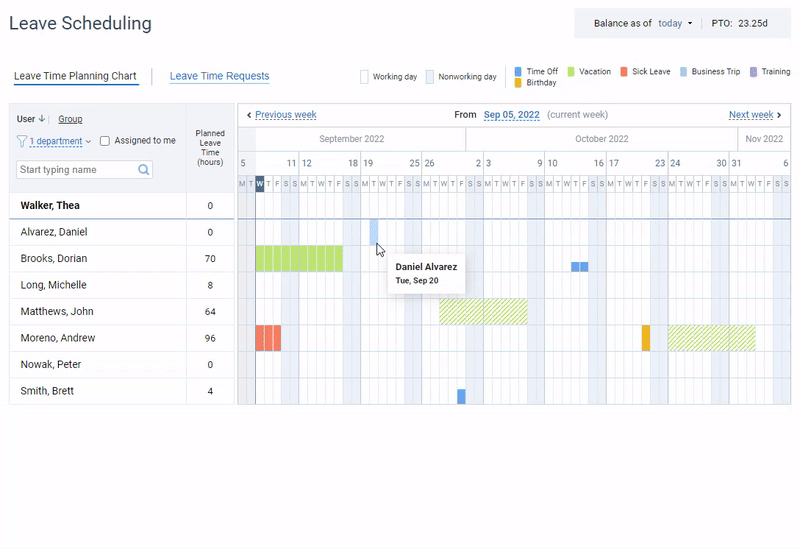Flexible work arrangements have been very popular in the last few years. Alternative types of employment contracts have become more common. One of the forms of contracting which is becoming increasingly popular is the fixed-term employment contract. What is a fixed term contract and how your business can benefit from recruiting fixed-term employees – read on to find out!

What Is a Fixed Term Contract?
Fixed term contracts are employment contracts that last for a specified period, usually between three months and up to a year. Unless renewed, fixed term contracts expire by a predetermined end-date. In this type of employment, employees are not on the company payroll but receive the payment fixed in advance that can not be altered until the contract expires.
The most common examples of fixed-term employees are:
- Fixed-contract employee employed to cover a regular employee who’s away on a maternity or paternity leave or took a sabbatical
- Bringing in a fixed-contract employee to take pressure off an overloaded team
- Hiring an employee with specialist knowledge and skills for a specific project
- Staff taken on during a peak period
Fixed term contracts are usually given out for jobs which are temporary and allow employers to temporarily fill a ‘gap’ in resources. Sometimes these employees become a permanent member of staff at the end of the contract.

Business Pros and Cons of Fixed Term Contract Employees
When weighing up the pros and cons of fixed term contracts, employers are not always aware of the state and local laws regulating fixed-term employment, the rights of fixed-term employees and the potential risks of recruiting fixed-term employees. What are pros and cons of fixed term contracts for businesses – let’s find out.
Pros of fixed term contracts:
- Fixed term contracts are very useful to cover a long term leave of a regular employee
- Fixed-term employees may cover a job where funding has been provided to undertake a specific task
- Fixed term contracts may cover some seasonal work
- Use short-term contracts as a probationary period to see how the employee works and how they fit into their organisation
- When an employer has a tight budget they may hire fixed-term employees to get more control over labour costs
Cons of fixed term contracts:
- Fixed-term employees are harder to recruit because the label ‘fixed term contract’ may put off people as it does not offer long-term job security
- Fixed term contracts roles may have to carry a higher rate of pay to attract the right candidate to compensate for them missing out on employee benefits typically offered to permanent employees
- If you frequently recruit staff using fixed term contracts, it considerably increases hiring costs
- If fixed-term employees constitute a great part of your workforce, it can adversely affect employee morale
What Rights Do Employees Have In a Fixed Term Contract?
It is a common misconception that fixed term employees don’t have any employment rights. On the contrary, they have the same rights as permanent employees and should not be treated less favourably than them.
In the UK, fixed-term employees have the same employment rights as permanent employees and are protected against discrimination by virtue of the Fixed-term Employees (Prevention of Less Favourable Treatment) Regulations 2002. According to the Regulations, fixed-term employees are entitled to receive the following:
- the same pay and working conditions as permanent employees
- the same or equivalent benefits package
- the right not to be unfairly dismissed or made redundant
- the right to be informed of available permanent vacancies within the organisation.
Before you look for fixed-term employees in your region, check out state and local laws and regulations regarding employee rights in fixed-term employment to mitigate legal liability.
What Happens At The End Of a Fixed Term Contract?
Fixed term contracts can expire, be extended, be terminated early or even converted to another type of employment. Let’s see what might happen after a fixed term contract ends.
Contract expiration
Fixed term contracts terminate automatically at the agreed endpoint and don’t require additional employee notice.
Early termination
Employers may end the contract early if appropriate wording is included in the contract. If the contract allows for early termination, the employer must provide a week’s notice. The same notice is true for employees, unless longer minimum notice periods are stated in the contract.
Contract renewal
Sometimes when a fixed term contract is coming to an end, necessary work hasn’t been finished. Unless the contract expressly states automatic renewal upon reaching the end date, the contract will be terminated.
To extend or renew a fixed term contract, the employer can either issue a new fixed term contract or by simply writing a letter extending the contract to a new termination date.
Converting to permanent status
Sometimes a temporary need in a fixed-time employee becomes ongoing and you want this employee to become a part of your permanent staff. In this case, you can grant them a permanent status using a new contract or or with a letter amending the terms of the fixed term contract.
Alternative vacancies
Fixed-term employees have the right to be informed of available permanent vacancies within the organisation, so you should ensure that they have access to vacancies and the opportunity to apply for permanent employment.
Redundancy
Employees are protected from being selected for redundancy, unless their employer can ‘objectively justify’ the choice. This means you must give them a good reason that is based on the needs of the business.
What Are The Risks Of Fixed Term Contracts?
Fixed term contracts are risky when hiring inside the country and internationally because you need to carefully consider state and local laws governing employment contracts, otherwise these contracts can do a business real harm.
For example, an employee dismissed before the expiration date of their contract may be entitled to the compensation of the rest contract period. Or if you renew a fixed term contract repeatedly, there is a possibility of the contract turning into a permanent employment contract (which is required by law in the UK).
The same is true for international fixed term contracts. If you are not versed in the nuances of local labor regulations, you may unwittingly put the organization at risk. For example, in Germany, fixed term contracts are only renewable up to three times in a two-year timetable. Or, in France, fixed-term work contracts are only allowed in special cases.
To minimize these risks, carefully research the allowable fixed term contract durations and number of renewals, allowable employment roles or job types and general labor laws for the country, including employee benefits, tax liabilities, dismissals and industry-specific regulations.
Ready to Recruit Fixed Term Contract Employees?
Fixed term contract employees require the same time and absence management as regular employees. That’s why you should consider introducing leave management software before you recruit your first fixed-term employee.
You may enjoy actiPLANS – leave management system with team calendar, custom leaves and absence statuses, automated balance calculations and more. In actiPLANS, you can add and remove new employees in a few clicks, set up their work schedules and account parameters in a few minutes.

Leave management in actiPLANS – create an unlimited number of leave types, get your team to request and plan their time off and review employee availability
And if you connect actiTIME time tracking software with actiPLANS, you’ll get a powerful time and absence management environment that will sync the data between the systems and facilitate your project management, leave tracking and accounting routines. Try actiPLANS for free using a 30-day trial (no credit card required).


